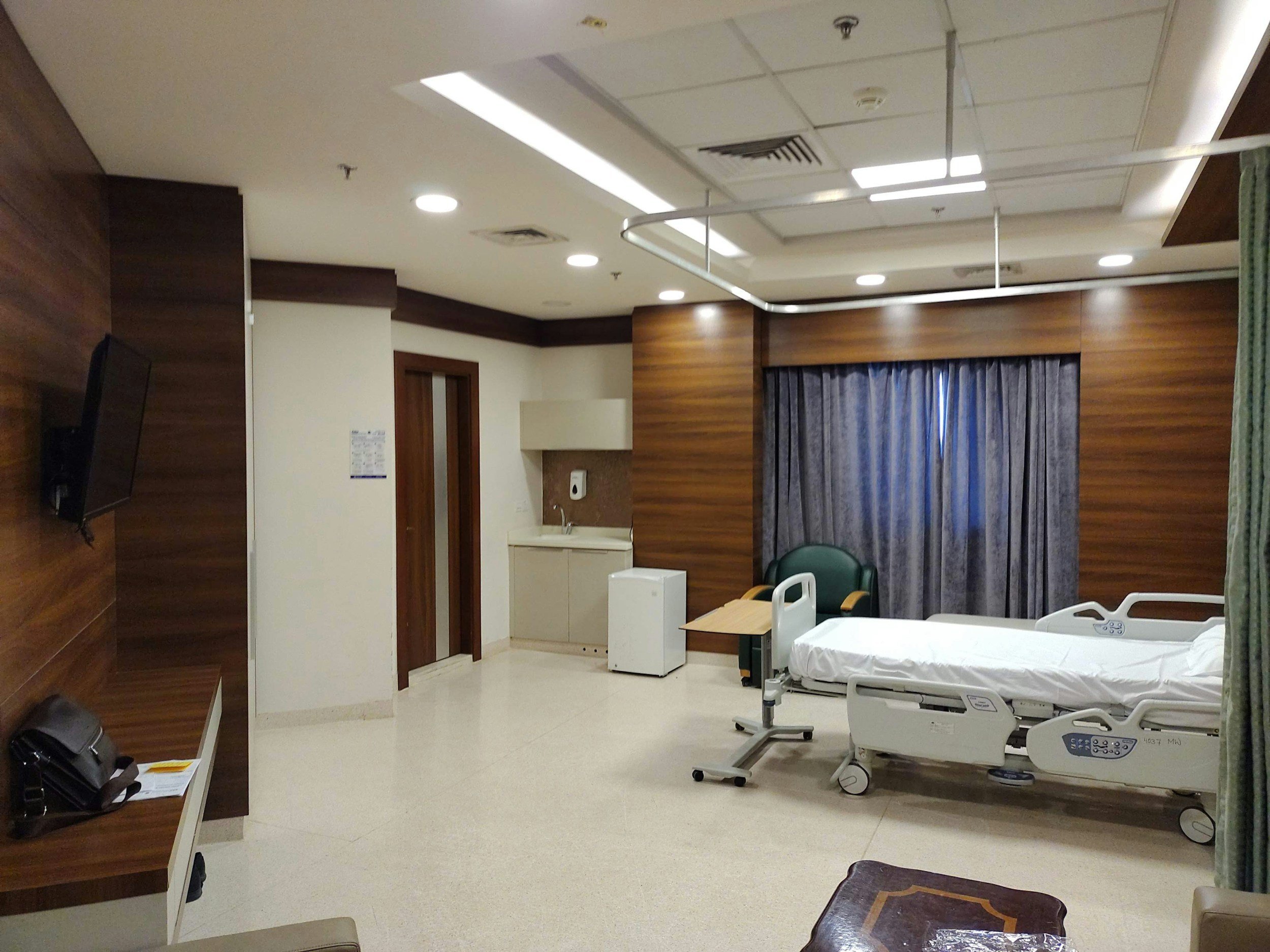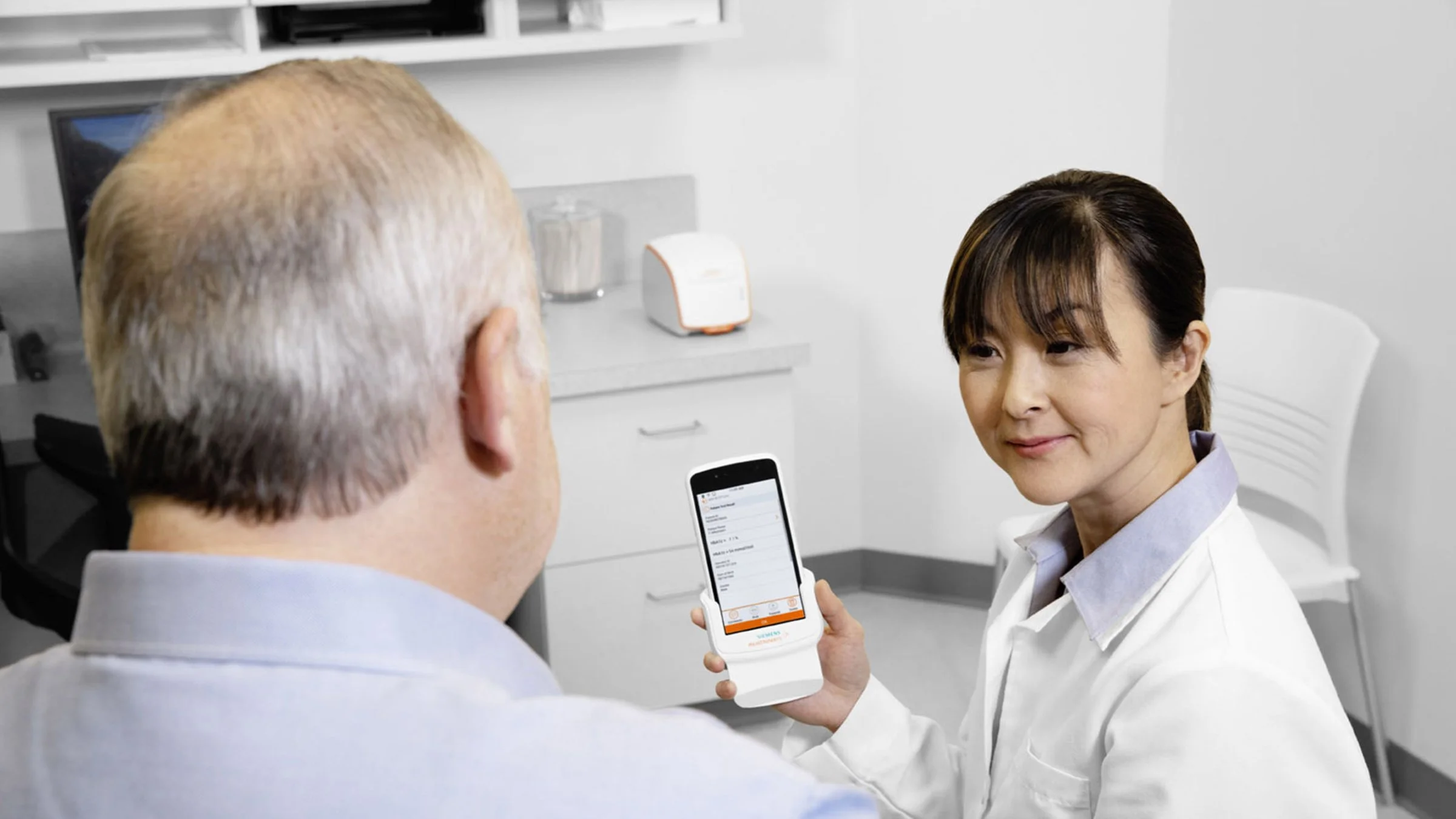Boston, Massachusetts
2023
Redefining Point-of-Care Diagnostics Through Innovation
Formist Studio partnered with Siemens Healthineers to deliver faster, more connected Point-of-Care systems. By rethinking diagnostics through human-centered design and AI-enhanced processes, we created a unified platform that reduces complexity and empowers clinicians to provide quicker, more accurate care.
MedTech Case Study
Challenge
Medical experts across critical care, chronic care, and laboratory environments face diagnostic bottlenecks caused by fragmented testing systems and siloed data streams. Each environment relies on multiple operators, varied sample types, and disparate test engines — often requiring separate workflows for blood gas, glucose, lipids, and more. This fragmentation not only slowed workflows but also delayed treatment decisions — directly impacting patient outcomes.
Siemens Healthineers needed a unified diagnostic platform that could adapt seamlessly across environments while handling diverse operators, sample types, and test engines — and, increasingly, leverage AI to connect insights across them.
Integrations
To unify diagnostics across diverse medical contexts, we designed:
Multiple Sample Types — A universal cassette system supporting blood, urine, and other sample types, simplifying workflows, reducing consumables, and training requirements.
Multiple Test Engine Types — A platform capable of daisy-chaining diverse diagnostic engines, including blood gas, glucose/diabetes, and lipid testing, enabling comprehensive diagnostics from one system.
Operator Flexibility — Intuitive workflows that accommodate clinical operators across critical care, chronic care, and lab environments while minimizing errors.
Unified Platform — A single, scalable solution integrating samples, engines, and environments into a seamless diagnostic experience.
AI-Powered Intelligence — Algorithms that recognize patterns across test data, flag anomalies, and adapt to operator behavior, creating a smarter, safer diagnostic process.
Development
Our iterative prototyping process combined clinician feedback, usability testing, and AI-driven workflow analysis to ensure the platform was adaptable, reliable, and intelligent. Machine learning models were integrated to refine usability, anticipate operator errors, and optimize speed-to-result across diverse care settings.
Critical Care Teams — Supported urgent testing in ERs and ICUs with AI-enhanced workflows designed for speed, clarity, and minimal setup.
Chronic Care Providers — Delivered consistent, reliable diagnostics to support long-term disease management, with algorithms that adapt to evolving patient needs.
Lab Technicians — Enabled scalable, high-volume testing through ergonomic, space-efficient design, supported by AI-driven process optimization.
Solution
The Atellica DCA platform emerged as a connected diagnostic system that combined human-centered design with AI-powered intelligence. By unifying sample types, test engines, and workflows, we created a solution that was faster, smarter, and adaptable across care settings.
Integrated Diagnostics — Blood gas, urinalysis, glucose, and lipid testing unified into a single platform.
Human-Centered Interface — Designed for clinicians in critical, chronic, and lab environments, reducing complexity and training demands.
AI-Enhanced Insights — Algorithms transformed raw test data into actionable recommendations, supporting triage, treatment prioritization, and anomaly detection.
Operational Efficiency — Reduced setup time, improved speed-to-result, and minimized workflow bottlenecks.
Scalable Design — Flexible enough for small clinics, large hospitals, and high-volume labs worldwide.
Real-time insights for critical care teams.
Integrated diagnostics for chronic care.
Scalable solutions for lab and clinical environments.
Results
The redefined platform delivered measurable impact for Siemens Healthineers and clinicians worldwide:
Research Impact — Ethnographic and quantitative studies with 1,000+ participants uncovered shifting behaviors, shaping a future-ready diagnostic strategy.
Patient Impact — Improved accessibility to diagnostics and loyalty through simplified, flexible testing tailored to evolving care models.
Market Leadership — Positioned Siemens Healthineers as a forward-thinking brand in DACH, UK, and US healthcare ecosystems.
Ecosystem Expansion — Created pathways for co-branding and partnerships, extending Siemens’ role in a connected diagnostic future.
AI-Driven Impact — Introduced intelligent diagnostic support, reducing errors, streamlining workflows, and improving patient outcomes at scale.



















